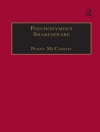‘Measure for Measure, ‘ while listed among William Shakespeare’s comedies, is doubtless among the darkest of his lighter works and remains one of the Bard’s most popular plays.
When the Duke of Vienna decides to go undercover in his own city, he leaves Angelo, his deputy, in charge and disguises himself as a monk to see how things progress in his absence. Angelo, who purports to be a man of honor and a stickler for the rules, arrests young Claudio for the ‘crime’ of impregnating his girlfriend and sentences him to death, causing Claudio’s sister Isabella – a novice nun – to come to Vienna and plead for her brother’s life. Angelo, upon meeting Isabella, is immediately smitten and despite his claims of moral superiority, offers Isabella a choice: watch her brother die…or submit herself to Angelo’s lust.
At times both hilarious and disturbing (and sometimes both at once), ‘Measure for Measure’ is among Shakespeare’s most debated and analyzed plays. It is presented here in its original and unabridged format.
Circa l’autore
William Shakespeare is generally acknowledged as the greatest dramatist in the history of English literature. Also a poet and actor, Shakespeare was born in Stratford-Upon-Avon, where he received an education at the local grammar school, but whether he attended any educational institution subsequent to his early tutelage is unknown. By eighteen, Shakespeare was married – to an already-pregnant Anne Hathaway – and the couple would go on to have three children, Susanna and the twins Hamnet and Judith. (Hamnet died at 11 years old.) Shakespeare moved to London soon after the birth of the twins and began publishing poems (‘Venus and Adonis’ (1593) and ‘The Rape of Lucrece’ (1594)) and joined the Lord Chamberlain’s Men as an actor and playwright. Shakespeare stayed with the Lord Chamberlain’s Men throughout his career, producing some of his finest work – ‘King Lear, ‘ ‘Macbeth’ and ‘The Tempest’ among them – after the company fell under the patronage of King James I and became The King’s Men. During his career, Shakespeare penned 38 plays, two narrative poems and over 150 sonnets and enjoyed considerable financial success, eventually buying New Place, one of the largest homes in Stratford. Following his death in 1616 at the age of 52, thirty-six of his plays were collected and published as the First Folio and his entire canon – including his extant plays, sonnets and poems – were published as The Complete Works of William Shakespeare. Shakespeare’s plays are the most produced dramatic works in existence and they have been translated and adapted into countless stage, screen and television productions over the years. Entire theatres are devoted to producing his works and his writings are studied and analyzed in literature classes around the world.












